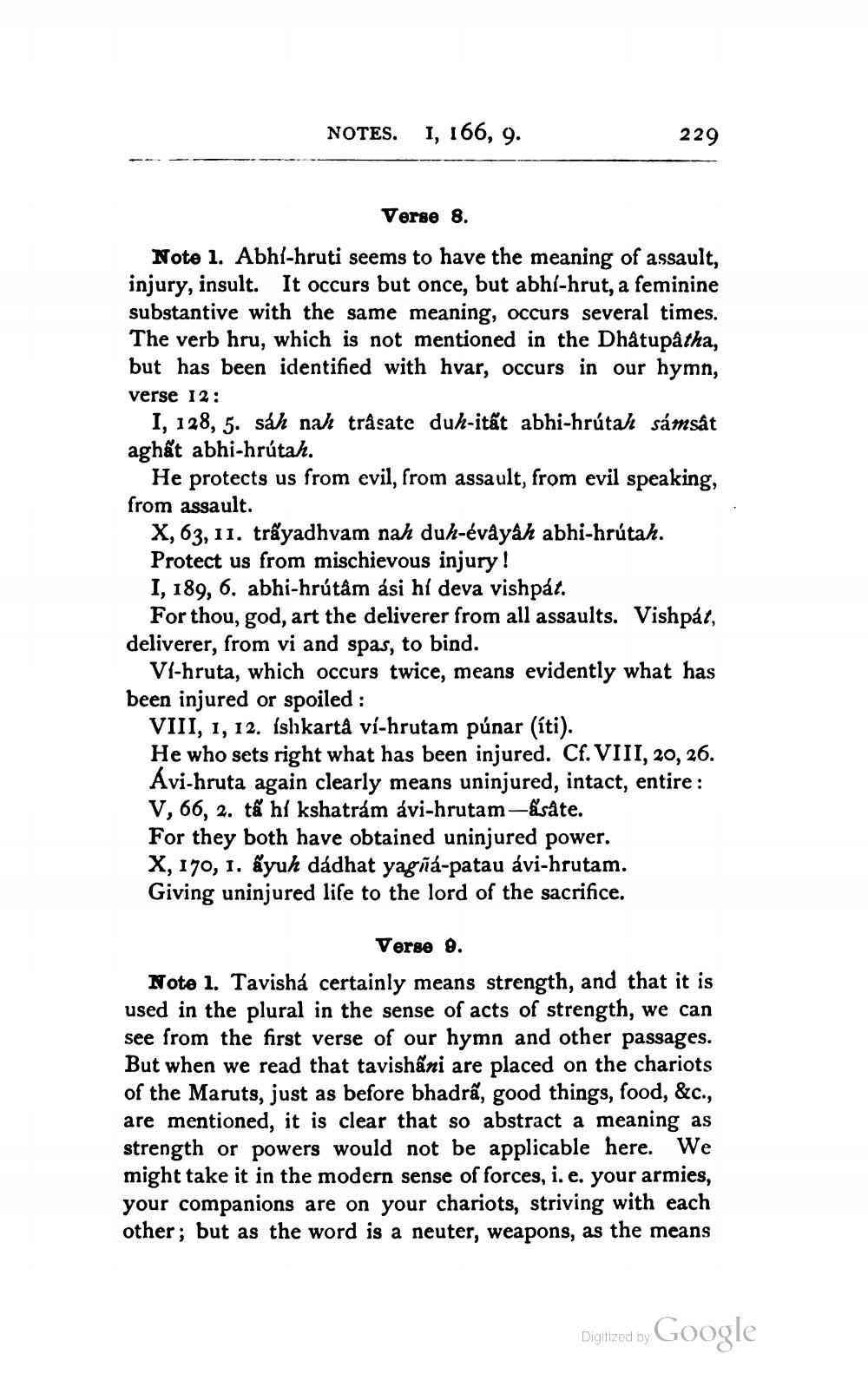________________
NOTES. I, 166, 9.
229
Verse 8.
Note 1. Abhi-hruti seems to have the meaning of assault, injury, insult. It occurs but once, but abhí-hrut, a feminine substantive with the same meaning, occurs several times. The verb hru, which is not mentioned in the Dhâtupâtha, but has been identified with hvar, occurs in our hymn,
verse 12:
I, 128, 5. sáh nah trâsate duh-itất abhi-hrútah sámsât aghất abhi-hrútah.
He protects us from evil, from assault, from evil speaking, from assault.
X, 63, 11. trẩyadhvam nah duh-évâyâh abhi-hrútah.
Protect us from mischievous injury!
I, 189, 6. abhi-hrútâm ási hí deva vishpát.
For thou, god, art the deliverer from all assaults. Vishpát, deliverer, from vi and spas, to bind.
Vi-hruta, which occurs twice, means evidently what has been injured or spoiled:
VIII, 1, 12. íshkarta ví-hrutam púnar (íti).
He who sets right what has been injured. Cf. VIII, 20, 26. Avi-hruta again clearly means uninjured, intact, entire : V, 66, 2. ta hí kshatrám ávi-hrutam-asâte. For they both have obtained uninjured power. X, 170, 1. ayuh dádhat yagñá-patau ávi-hrutam. Giving uninjured life to the lord of the sacrifice.
Verse 9.
Note 1. Tavishá certainly means strength, and that it is used in the plural in the sense of acts of strength, we can see from the first verse of our hymn and other passages. But when we read that tavishani are placed on the chariots of the Maruts, just as before bhadra, good things, food, &c., are mentioned, it is clear that so abstract a meaning as strength or powers would not be applicable here. We might take it in the modern sense of forces, i. e. your armies, your companions are on your chariots, striving with each other; but as the word is a neuter, weapons, as the means
Digitized by Google




